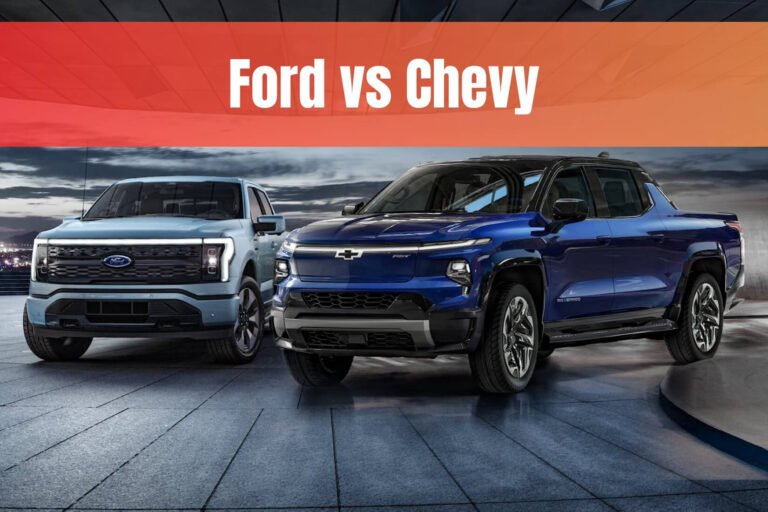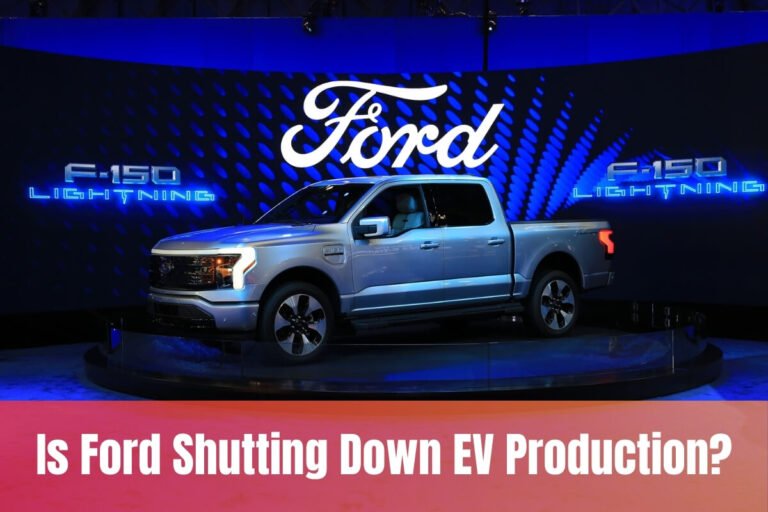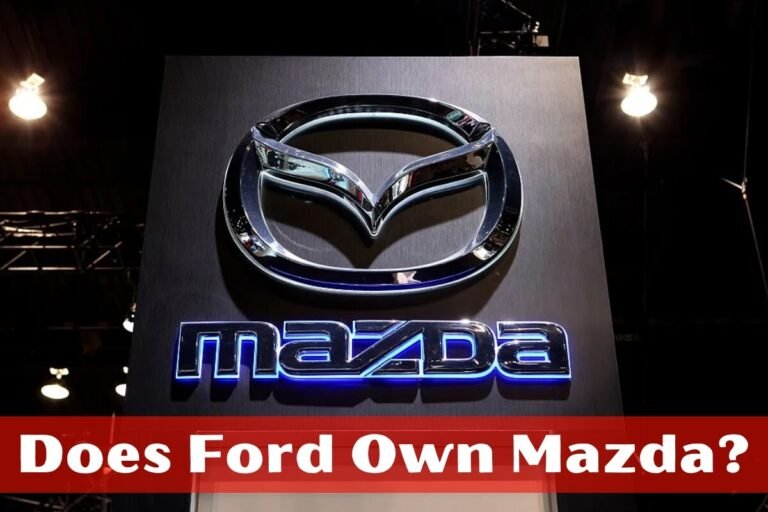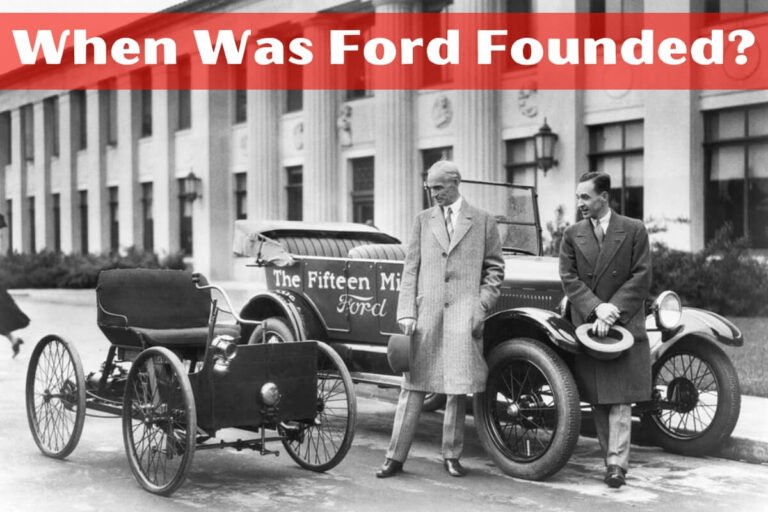Are Ford Escapes Good Cars? An In-Depth Look

Choosing the right vehicle is a big decision. With so many options on the market, it’s crucial to do your research and find a car that meets your needs for reliability, safety, features, and overall value. If you’re considering a compact SUV, the Ford Escape has likely caught your eye.
The Escape has been one of Ford’s top-selling models for over 20 years, offering a blend of practicality, fuel efficiency, and affordability. But the million-dollar question is: Are Ford Escapes good cars?
The short answer is that the quality and reliability of Ford Escapes have been inconsistent across different model years. Some years have been plagued with significant issues, while others have proven to be quite dependable choices in the compact SUV segment.
In this in-depth guide, we’ll take a comprehensive look at the Ford Escape’s pros and cons, reliability ratings, common problems to watch out for, the best and worst model years, how it stacks up against the competition, and its overall value proposition. By the end, you’ll have all the information you need to decide if the Escape is the right compact SUV for you.
What Are the Pros and Cons of the Ford Escape?
Like any vehicle, the Ford Escape has its share of strengths and weaknesses. Let’s start by examining the key pros and cons:
Pros
- Spacious and Comfortable Interior: The Escape offers a roomy cabin with ample head and legroom for both front and rear passengers. The seats are well-cushioned and supportive, making long journeys more comfortable.
- Decent Fuel Economy: Depending on the engine and drivetrain configuration, the Escape can achieve decent fuel economy ratings, especially when opting for the hybrid or plug-in hybrid powertrain variants.
- User-Friendly Infotainment System: Ford’s SYNC infotainment system is praised for its intuitive interface, seamless smartphone integration (Apple CarPlay and Android Auto), and responsive touchscreen displays.
- Available Punchy Turbocharged Engines: While the base engines provide adequate power, the available turbocharged options (like the 2.0L EcoBoost) offer a more spirited and enjoyable driving experience.
- Competitive Pricing and Value: The Escape’s pricing is competitive within the compact SUV segment, and lower trims offer a good amount of standard features for the money.
Cons
- Subpar Interior Quality: While the cabin is spacious, the lower trim levels of the Escape feature an abundance of hard plastics and cheap-feeling materials, detracting from an otherwise upscale experience.
- Firm and Uncomfortable Ride Quality: Some Escape models have been criticized for their overly firm suspension setups, resulting in a less comfortable and refined ride, especially over rough surfaces.
- Transmission Issues and Clunky Shifts: A common complaint among Escape owners has been related to jerky and unrefined transmission shifts, as well as instances of complete transmission failure in some cases.
- Lackluster Handling and Driving Dynamics: While adequate for everyday driving, the Escape’s handling and overall driving dynamics fail to impress, lacking the responsiveness and engagement offered by some rival compact SUVs.
- Below-Average Predicted Reliability Ratings: As we’ll explore in more detail later, the Escape’s predicted reliability ratings have often been below average for the compact SUV segment, especially in certain problematic model years.
How Reliable Are Ford Escapes? Common Issues to Watch Out For
One of the most crucial factors in determining whether a car is “good” or not is its reliability. Unfortunately, the Ford Escape’s reliability has been a mixed bag, with some model years faring better than others.
According to data from various automotive experts, consumer reports, and online forums, some of the most common issues reported with Ford Escapes include:
- Transmission Failures and Harsh Shifting: Numerous owners have reported issues with the Escape’s transmission, ranging from jerky and abrupt shifts to complete transmission failure, sometimes occurring without any prior warning signs.
- Engine Stalling, Misfiring, and Coolant Leaks: Problems with the engine, such as stalling, misfiring, check engine lights illuminating, and coolant leaks, have been reported across multiple Escape model years.
- Power Steering Loss at Low Speeds: A significant number of Escape owners have experienced power steering failures, primarily at lower speeds, making the vehicle difficult to maneuver and posing a potential safety hazard.
- Brake Issues: Complaints about noisy brakes, premature brake pad wear, and other brake-related problems have been widespread among Escape owners.
- Interior Accessory and Electrical System Problems: Issues with interior accessories like door handles, climate control systems, and various electrical components have also been commonly reported.
It’s important to note that while these issues have been reported across multiple model years, their frequency and severity can vary. Some model years have been more plagued by certain problems than others.
Ford Escape Reliability Ratings by Model Year
To better understand the Escape’s reliability track record, let’s take a look at how different model years have fared in terms of predicted reliability ratings from reputable sources like J.D. Power and Consumer Reports:
- 2023 Escape: No predicted reliability rating available yet.
- 2022 Escape: Below average reliability rating (2/5 from Consumer Reports).
- 2021 Escape: Below average reliability rating (2/5 from Consumer Reports).
- 2020 Escape: Average reliability rating (3/5 from Consumer Reports, 84/100 from J.D. Power).
- 2019 Escape: Below average reliability rating (2/5 from Consumer Reports, 80/100 from J.D. Power).
- 2018 Escape: Below average reliability rating (2/5 from Consumer Reports, 78/100 from J.D. Power).
- 2017 Escape: Below average reliability rating (2/5 from Consumer Reports, 83/100 from J.D. Power).
- 2016 Escape: Below average reliability rating (2/5 from Consumer Reports).
- 2015 Escape: Below average reliability rating (2/5 from Consumer Reports).
- 2014 Escape: Below average reliability rating (2/5 from Consumer Reports).
As you can see, the Escape’s reliability ratings have been consistently below average across most model years, with only a few exceptions like the 2020 model receiving an average rating. This inconsistency in reliability has been a significant drawback for the Escape over the years.
What Are the Best and Worst Years for the Ford Escape?
Based on the reliability data, consumer reports, and overall praise (or criticism) from automotive experts, some model years stand out as being better or worse choices when it comes to the Ford Escape.
Best Ford Escape Years
- 2020 Ford Escape: The 2020 model year marked a redesign for the Escape, bringing updated styling, new powertrains, and improved standard safety features. It has received relatively positive reviews and an average predicted reliability rating, making it one of the better Escape models to consider.
- 2012 Ford Escape: As the last model year of the previous generation, the 2012 Escape benefited from years of refinement and updates. It has the fewest number of complaints and is generally regarded as a solid choice among used Escape models.
- 2005 Ford Escape: The 2005 Escape was praised for its safety ratings and won numerous awards upon its release. It’s considered one of the safest and most reliable model years of the Escape’s early generations.
Worst Ford Escape Years to Avoid
- 2014 Ford Escape: The 2014 model year is widely regarded as one of the worst for the Escape, with widespread issues related to transmissions, engines, and a high number of complaints from owners.
- 2013 Ford Escape: The 2013 Escape earned the notorious “Avoid Like the Plague” rating from automotive experts due to over 3,000 complaints to the NHTSA. Engine stalling, failure, and even fires were among the most severe issues reported.
- 2008 Ford Escape: With over 600 complaints, primarily related to transmission and steering system problems, the 2008 Escape is another model year that should be avoided if possible.
While these are some of the standout best and worst model years, it’s always a good idea to thoroughly research any used Escape you’re considering to ensure you’re getting a reliable vehicle.
Is the Ford Escape a Good Value?
Value is another crucial factor to consider when shopping for a new or used vehicle. In the compact SUV segment, the Ford Escape generally offers a compelling value proposition, especially when opting for lower trim levels or well-equipped mid-range trims.
One of the Escape’s strengths is its competitive pricing compared to other compact SUVs. Entry-level trims like the Escape S or SE offer a decent amount of standard equipment at an affordable price point. This makes the Escape an appealing choice for budget-conscious buyers looking for a practical SUV without breaking the bank.
However, it’s essential to consider potential repair costs that could offset any upfront savings. As we’ve seen, the Escape’s reliability can be hit-or-miss, and repair bills for issues like transmission replacements can quickly add up. If you’re considering a used Escape, it’s wise to opt for a model year with better reliability ratings to minimize unexpected repair expenses down the line.
On the flip side, if you manage to get your hands on one of the more dependable Escape model years, it can represent excellent value for money, especially when you factor in its spacious interior, decent fuel economy, and well-rounded feature set.
Ford Escape vs. Other Compact SUVs
To better evaluate the Escape’s standing in the compact SUV segment, it’s helpful to compare it to some of its key rivals. Here’s a quick look at how the Ford Escape stacks up against popular alternatives:
Ford Escape vs. Honda CR-V The Honda CR-V has consistently outperformed the Escape in terms of predicted reliability ratings and owner satisfaction. It offers a more refined driving experience, better build quality, and a reputation for dependability that the Escape struggles to match.
Ford Escape vs. Toyota RAV4 Like the CR-V, the Toyota RAV4 is a standout choice in the compact SUV class, known for its rock-solid reliability, well-appointed interior, and strong resale value. While the Escape may have a slight pricing advantage, the RAV4’s overall ownership experience is generally considered superior.
Ford Escape vs. Mazda CX-5 The Mazda CX-5 is often praised for its engaging driving dynamics, upscale interior, and excellent fuel efficiency. It may not be quite as spacious as the Escape, but it outshines Ford’s offering in terms of reliability, build quality, and overall refinement.
Ford Escape vs. Hyundai Tucson/Kia Sportage The Hyundai Tucson and Kia Sportage are worth considering if you prioritize value, as they offer a compelling mix of features, space, and affordability. However, like the Escape, their long-term reliability can be somewhat inconsistent, making them a riskier proposition than some of the class leaders.
While the Escape can hold its own in certain areas, such as interior space and available tech features, its rivals often outshine it in crucial areas like reliability, driving dynamics, and overall refinement – factors that can significantly impact ownership satisfaction in the long run.
Final Verdict
The Ford Escape is a compact SUV that offers a mixed bag of strengths and weaknesses. On the plus side, it provides a spacious and comfortable interior, decent fuel economy (especially with hybrid variants), user-friendly tech features, and competitive pricing.
However, its Achilles’ heel has consistently been below-average predicted reliability ratings, with numerous reports of transmission issues, engine problems, power steering failures, and other quality-related complaints across multiple model years.
If you can avoid the particularly problematic model years highlighted in this guide (2014, 2013, and 2008), an Escape from a good model year (like 2020, 2012, or 2005) can potentially make for a compelling value purchase, especially if you prioritize interior space and affordability over long-term dependability.
That said, for buyers seeking absolute peace of mind and a more well-rounded ownership experience, alternatives like the Honda CR-V, Toyota RAV4, and Mazda CX-5 may be better choices. These vehicles consistently rank higher for predicted reliability, resale value, and overall refinement within the compact SUV segment.
Ultimately, the decision to buy a Ford Escape will come down to your personal priorities and how much weight you place on factors like reliability versus value and interior spaciousness. By carefully considering the information presented in this guide, you’ll be better equipped to make an informed decision that aligns with your specific needs and expectations.






